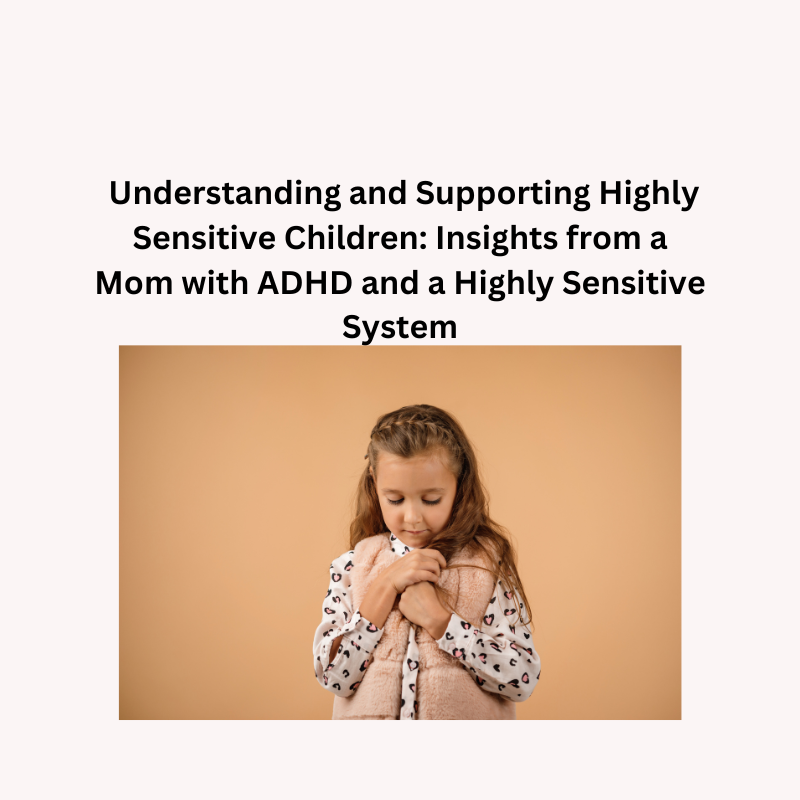
Parenting or teaching a child who is highly sensitive often brings unique joys and challenges. As a mom with ADHD and a highly sensitive system, I know how overwhelming and enriching the world can feel when you process emotions, sensations, and experiences deeply. In this article, I’ll explore what it means to be highly sensitive, how it connects to sensory processing and ADHD, and how parents and educators can provide support.
What Does It Mean to Be Highly Sensitive?
The term “highly sensitive person” (HSP) was first introduced by Dr. Elaine N. Aron, whose work has been pivotal in understanding this trait. Highly sensitive individuals process sensory input and emotions more deeply than others. While this sensitivity can enhance creativity and empathy, it can also make certain environments—like noisy classrooms or crowded family gatherings—overwhelming.
Children with a highly sensitive system might:
- Be easily overstimulated by loud noises, bright lights, or busy environments.
- Show heightened empathy and an acute awareness of others’ emotions.
- Need more downtime to recover from overstimulation.
- React intensely to criticism or conflict.
Dr. Aron’s books, The Highly Sensitive Child and The Highly Sensitive Person, provide invaluable insights into this trait. Her documentary, Sensitive: The Untold Story, is also a fantastic resource for parents and educators seeking to understand sensitivity.
The Link Between Sensory Processing, ADHD, and Sensitivity
Highly sensitive children often experience sensory processing challenges. Everyday stimuli—like the texture of clothing or the hum of fluorescent lights—can feel intolerable. This heightened sensory awareness frequently overlaps with ADHD, making self-regulation even more complex.
As someone with ADHD, I’ve learned that sensory overwhelm isn’t just a quirk—it’s a fundamental part of how I experience the world. Similarly, a highly sensitive child might need extra support to navigate environments that feel overwhelming.
How to Support Highly Sensitive Children at Home and School
Here are strategies for parents and educators to help highly sensitive children thrive:
- Create Predictable Routines: Consistency helps reduce overwhelm and provides a sense of security.
- Provide Sensory-Friendly Tools: Products like noise-canceling headphones, weighted blankets, and fidget tools can help manage sensory input.
- Practice Emotional Validation: Teach children to name and accept their emotions without judgment.
- Design Quiet Spaces: At school and home, create calming areas where children can decompress.
- Use Positive Discipline: Avoid harsh criticism, as sensitive children internalize it deeply.
Recommended Books and Products
- The Highly Sensitive Child by Elaine N. Aron: A comprehensive guide for parents of sensitive children.
- The Out-of-Sync Child by Carol Stock Kranowitz: A must-read for understanding sensory processing issues.
- Dr. Meter Ear Muffs for Noise Reduction: Perfect for reducing auditory overwhelm.
- Fidget tools: Help children with ADHD and sensory needs focus and self-soothe.
- Anfie Weighted Blanket Kids: Great for promoting relaxation and reducing anxiety.


